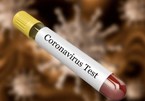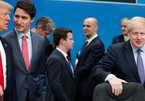Vietnam has initially contained the novel coronavirus, becoming the first among affected countries to reopen the economy.
The Vaccine Alliance (Gavi) whose mission is to save lives, reduce poverty, and protect the world against the threat of epidemics, has named four essential measures that have helped Vietnam fight the virus effectively.
With a population of over 97 million, Vietnam has experience in responding to outbreaks of other infectious diseases including SARS, MERS, measles and dengue. In the case of the novel coronavirus, Vietnam relied on four relatively cost-effective solutions to combat the virus, Gavi reported.
On January 23, 2020, Vietnam became one of the first countries to report Covd-19 infections and the first to report human-to-human transmission outside of China. Four months later, the country has confirmed just 327 cases and no deaths.
At the time of writing, the country has undergone 42 days without local transmission. The situation has enabled Vietnam to resume its tourism, allow crowd gatherings, and operations of different fields.
Let's explore how Vietnam has contained the virus.
| Infections (red) and convalescents (green) in Vietnam over the last two weeks. Source: Ministry of Health |
Quick strategic testing
When the first reports of Covid-19 infections came out of China, Vietnam immediately acted. Familiar with recent epidemics, such as SARS and H5N1, it closely monitored border areas to prevent the spread of the new virus.
When Covid-19 was later detected, it quarantined affected communities.
On January 11, after China reported the first coronavirus death, Vietnam implemented health checks at airports. All visitors had their body temperatures measured, and those with a fever, cough, chest pain or shortness of breath were isolated for testing.
Confirmed cases, fellow passengers and crewmembers, and all their contacts were quarantined for 14 days.
The Ministry of Health organized a meeting with the World Health Organization (WHO) and the US Centers for Disease Control and Prevention (CDC) as early as January 15, weeks before many other countries even started strategizing. These combined efforts of quick action and effective testing helped slow the spread of the virus in its earliest stages.
Aggresssive contact tracing
As the virus spread throughout the world, Vietnam enacted a mandatory 14-day quarantine for everyone arriving in the country and cancelled all international flights. People showing Covid-19 symptoms were closely monitored in medical facilities and their contacts were traced.
Using the Ministry of Health’s records of infected, suspected, and exposed cases of Covid-19, extensive contact tracing was possible thanks to “the rapid mobilization of health professionals, public security personnel, the military, and civil servants.”
Contact tracing was also successfully implemented with technology. A mobile app called NCOVI was developed by Vietnam’s Ministry of Information and Communications (MIC). This lets the public update their health status daily. It also shares ‘hotspots’ of new cases and gives its user ‘best practices’ for staying healthy.
This was supported by an online reporting system, developed by the Ministry of Health, to monitor suspected and confirmed coronavirus cases. These combined efforts have ensured that new infections are reported and subsequently isolated.
Effective public communications campaigns
Vietnam did not shy away from broadcasting the seriousness of Covid-19. It even made a pop music video that went viral. Supported by the state, this video uses a catchy song to communicate the importance of handwashing. It is memorable, effective and has been enthusiastically shared with the rest of the world.
On March 19, Vietnam also launched a fundraising campaign to buy medical and protective equipment for people working closely with Covid-19 patients. By April 5, more than US$2.1 million donations had been mobilized via a text message platform.
Both of these public campaigns successfully raised awareness about the coronavirus pandemic, suppressing its spread.
Swift development of testing kits
Some reports claim Vietnam only has zero Covid-19 deaths because of insufficient testing being carried out. However, this is not the case. Not only did the country buy 200,000 tests from South Korea, but it’s quickly developed its own successful test kits.
The Vietnamese Covid-19 test kit was developed by scientists within a month. It is effective, affordable and fast, diagnosing suspected Covid-19 infections in just an hour. Using WHO-approved techniques, these test kits make it possible to isolate infected people and track down their contacts. Unlike other countries that rely on mass testing, in Vietnam, tests are only done on those likely to be infected.
These four factors are a crucial part of Vietnam’s Covid-19 success story. Time will tell if these measures continue to keep the number of people infected down, but it seems likely.
Vietnam proves that sometimes less is more, even during Covid-19. Hanoitimes
Linh Pham

Vietnam to continue testing Covid-19 vaccine on mice
Company for Vaccine and Biological Production 1 (VABIOTECH) under the Ministry of Health will conduct a second test of Covid-19 vaccine on mice next month.

The world in the post-Covid-19 era (Part 6)
Despite the best scenario, the consequences that the invisible Covid-19 enemy has caused to nations and international relations are severe, which will affect the world decades later.
 Vietnam did not shy away from broadcasting the seriousness of Covid-19.
Vietnam did not shy away from broadcasting the seriousness of Covid-19.